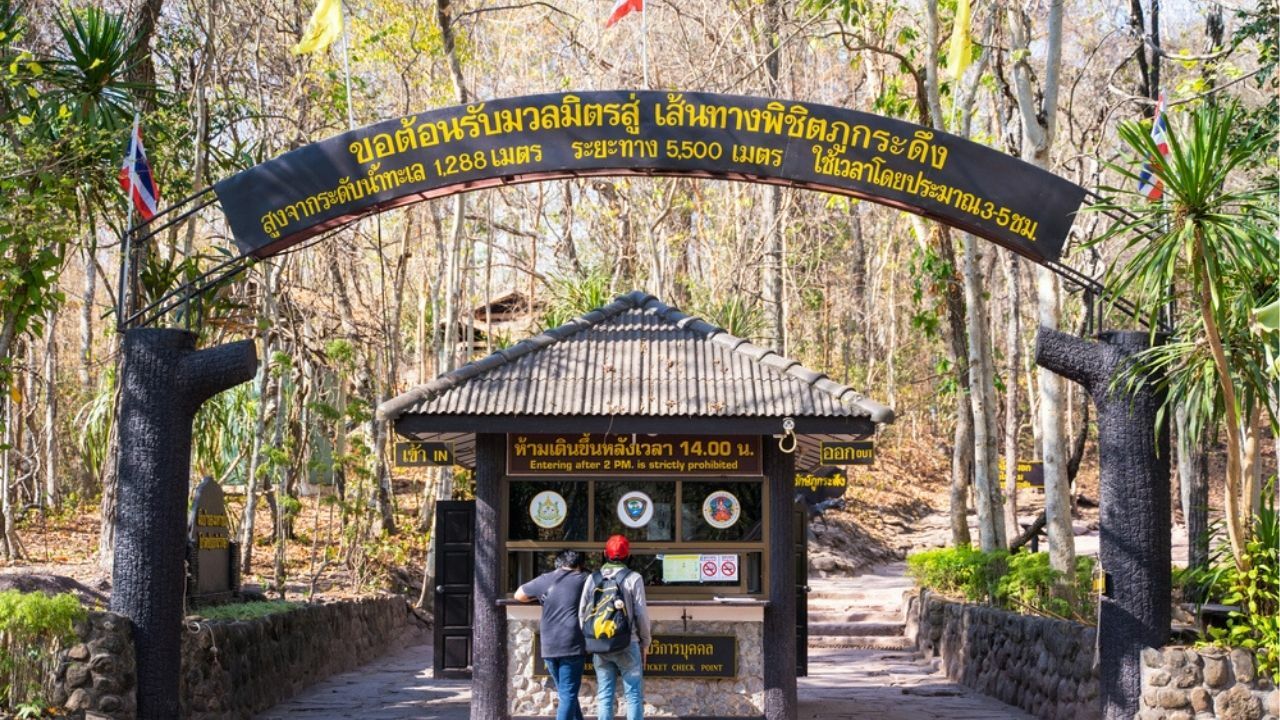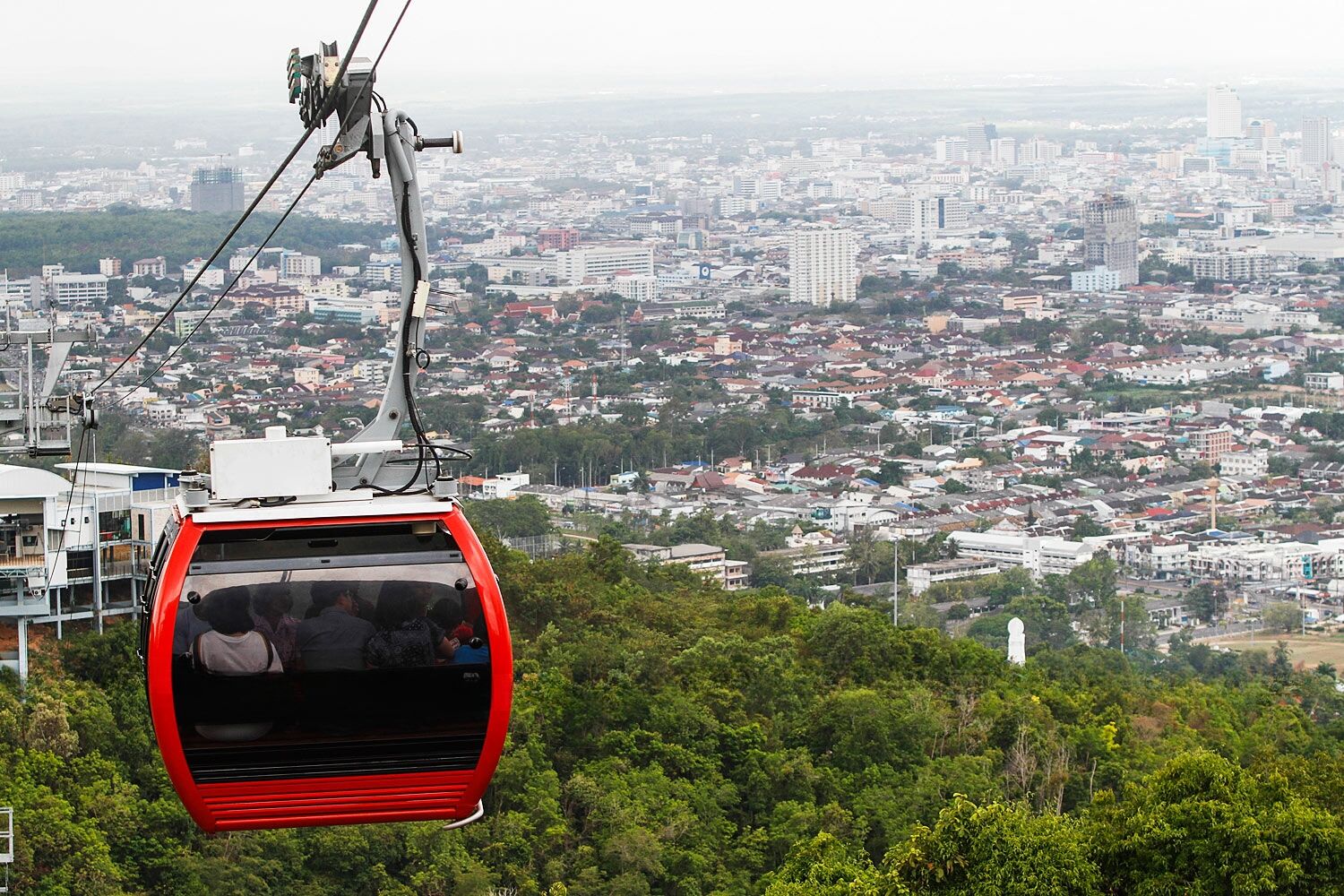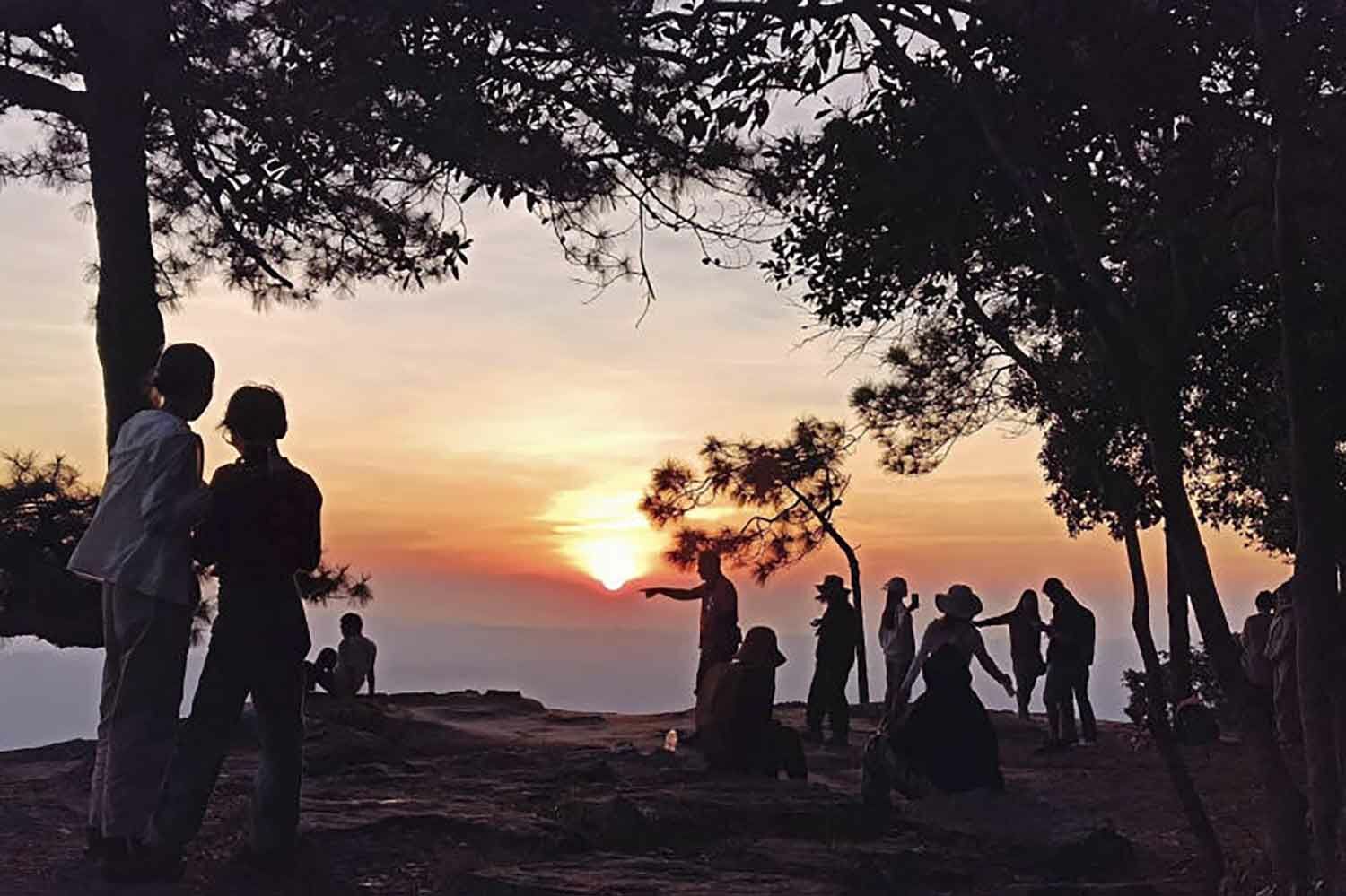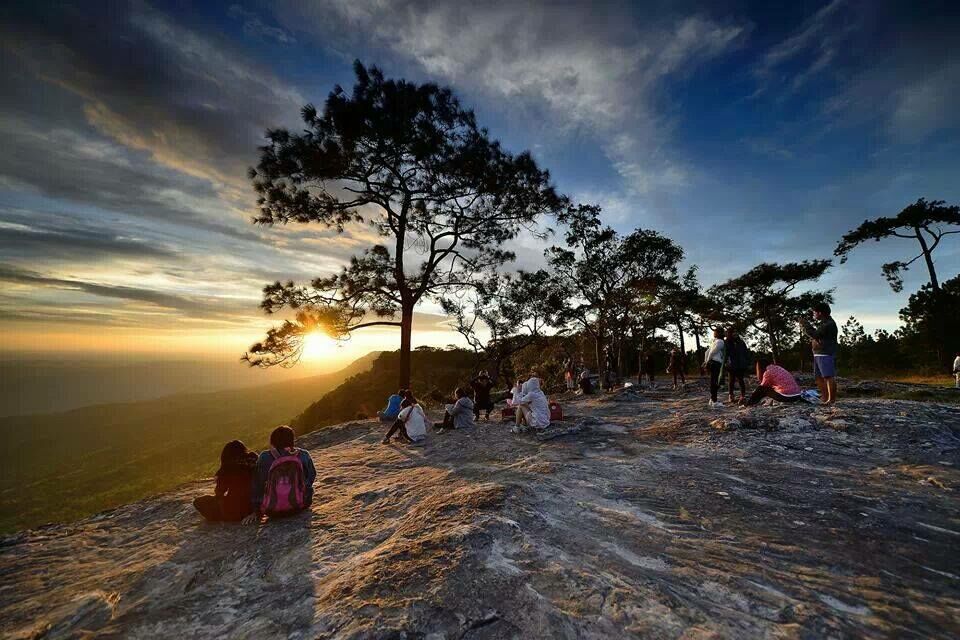Phu Kradueng cable car sparks sustainability fears
Critics warn of environmental exploitation masked as tourism development in government-backed projects

The proposed cable car project in Phu Kradueng National Park, Loei province, has once again been thrust into the spotlight, with questions being raised about its compliance with sustainable development objectives.
Opponents argue that the project exemplifies a trend of government-supported large-scale initiatives that could exploit natural resources under the guise of tourism growth.
The issue re-emerged late last month after the Department of National Parks, Wildlife and Plant Conservation (DNP) allowed a two-year extension for a feasibility study of the cable car proposal. This development followed the Budget Bureau’s approval of a 25.7 million baht budget for the Designated Areas for Sustainable Tourism Administration (DASTA) to advance the project’s design phase.
First proposed in 1982, the Phu Kradueng cable car project has undergone several feasibility studies conducted by both academic and private entities. In 2004, the government led by then prime minister, Thaksin Shinawatra, tasked DASTA with a detailed feasibility study, which included identifying a potential route and providing recommendations to the Cabinet.

Renewed interest surfaced in 2012 when the Cabinet instructed the Ministry of Natural Resources and Environment and DASTA to revisit the project. Progress was halted due to opposition from environmentalists concerned about overtourism and its effects on the park’s delicate ecosystem. Momentum returned in 2023 when the government under Srettha Thavisin incorporated the project into a strategic plan for sustainable tourism in designated areas.
This year, the government, led by Prime Minister Paetongtarn Shinawatra, sanctioned a 25.7 million baht budget for the project’s design and study.
Study phase
On May 5, Attapol Charoenchansa, director-general of the DNP, confirmed that the cable car is still in the study phase and remains unapproved. He highlighted the park’s financial challenges, observing that despite a considerable management budget, the park generates relatively low revenue. In the fiscal year 2024, Phu Kradueng saw 66,943 visitors, resulting in earnings of just 13.7 million baht.
Attapol mentioned that increasing revenue through alternative avenues, including the cable car, is being considered. He stated that modern construction techniques could reduce land use and environmental impact, with technology proposals from European countries such as Switzerland, the Netherlands, Norway, Sweden, and Germany. A potential station site has been identified at Pha Mak Dook cliff, deviating from the main trailhead, with the proposed route not exceeding 3 kilometres.

Designated as an ASEAN Heritage Park in October 2023, Phu Kradueng is celebrated for its unique mesa landscape and diverse endemic plant species, attracting botanists and nature lovers. Environmentalists caution that although the forest might remain largely untouched by a cable car, the project would irreversibly alter the 4.4-kilometre hiking trail to the summit, a route acclaimed as one of Thailand’s best.
Additional infrastructure
The DNP also envisions broader enhancements within a 10-kilometre radius of the park, including road improvements, a shuttle bus system, educational centres, and new visitor facilities. Officials suggest that cable cars could improve accessibility for day-trippers and ease the strain on the park’s limited overnight lodging.
Attapol noted that public opposition to the project has decreased, with many residents now supporting it due to the prospect of increased tourism revenue. Despite rising local backing, conservationists remain doubtful. They question whether the convenience of the cable car justifies potentially losing the park’s natural allure. They also warn that the expected economic benefits for nearby communities may not be realised if the project fails to meet sustainability standards, reported Bangkok Post.

Critics highlight that the estimated 1-billion-baht investment may not yield sufficient returns, cautioning that the cable car could become a financial liability rather than an asset to national park management, given its long payback period and substantial ongoing maintenance costs.
Latest Thailand News
Follow The Thaiger on Google News:


























